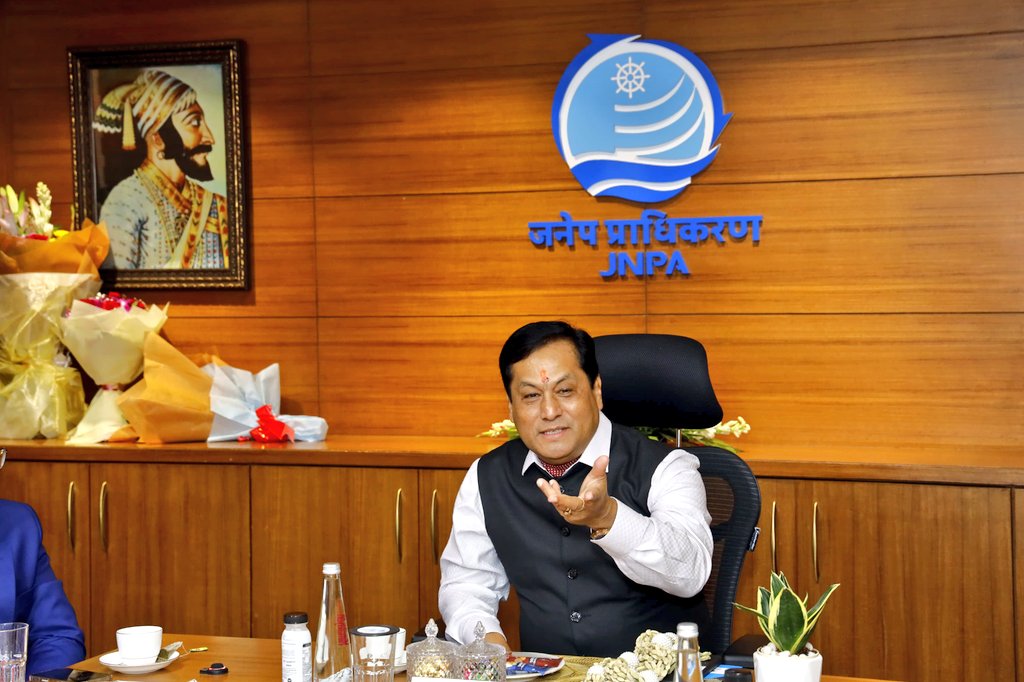India Charts Course for Global Maritime Power with Major Shipbuilding Reforms
To reinforce self-reliance in maritime infrastructure, the Government has extended the Right of First Refusal (ROFR) to Indian shipyards for all PSUs’ procurement tenders.

- Country:
- India
In a major policy thrust aimed at transforming India into a global shipbuilding powerhouse, the Union Government under the leadership of Prime Minister Narendra Modi has launched a series of reforms and investments designed to revitalize the nation's maritime ecosystem. These wide-ranging initiatives are in alignment with the Maritime India Vision 2030 and the long-term development roadmap of Amrit Kaal, targeting the realization of Viksit Bharat by 2047.
Responding to a starred question by Dr. Rajeev Bharadwaj, Member of Parliament from Kangra Lok Sabha constituency, during the ongoing Monsoon Session of the Lok Sabha, Union Minister for Ports, Shipping & Waterways, Sarbananda Sonowal, laid out the Government’s strategic blueprint for creating a robust, globally competitive, and sustainable shipbuilding industry.
A New Era for Indian Shipbuilding: Core Announcements
Highlighting the Union Budget 2025’s key reforms, Minister Sonowal emphasized that the Government is working to eliminate cost disadvantages, incentivize infrastructure creation, and mobilize large-scale capital to modernize shipyards and foster innovation.
Among the flagship announcements:
-
Revamped Shipbuilding Financial Assistance Policy to provide level-playing ground against international players
-
Credit notes for ship-breaking to promote sustainability and recycling in the maritime economy
-
Inclusion of large ships in the Infrastructure Harmonised Master List, opening access to long-term, low-interest institutional finance
-
Development of integrated shipbuilding clusters with modern yards, skill development centers, and R&D infrastructure
₹25,000 Crore Maritime Development Fund: A Capital Game-Changer
One of the Budget’s most significant proposals is the creation of a ₹25,000 crore Maritime Development Fund, with up to 49% government contribution, aimed at bridging the capital gap in this long-gestation industry. The fund will:
-
Catalyze private sector and port-led investments
-
Finance new shipyards and expansion of existing facilities
-
Accelerate R&D and innovation in ship design and green marine technology
-
Provide financial support to ancillary units in shipbuilding, ship repair, and maritime logistics
Tax Incentives to Spur Domestic Manufacturing
To further stimulate growth, the Government has extended Basic Customs Duty (BCD) exemptions on raw materials and components used in shipbuilding and ship-breaking for another 10 years. This long-term exemption is seen as a cornerstone policy move to improve cost-efficiency and drive domestic manufacturing of maritime equipment.
Boosting Domestic Procurement and Make in India
To reinforce self-reliance in maritime infrastructure, the Government has extended the Right of First Refusal (ROFR) to Indian shipyards for all PSUs’ procurement tenders. Additionally, under the Public Procurement (Preference to Make in India) Order 2017, vessels worth up to ₹200 crore must be sourced exclusively from Indian yards, thereby giving local builders a significant edge in public projects.
Minister Sonowal also announced the release of five standardized tugboat designs, to be built in Indian shipyards for deployment at major ports. These designs are expected to streamline procurement and reduce costs, in line with PM Modi’s call for efficiency, innovation, and standardization in public infrastructure.
Expanding Repair Infrastructure and Regional Hubs
On the ship repair front, Cochin Shipyard Limited (CSL) has inaugurated a state-of-the-art ₹970 crore International Ship Repair Facility (ISRF) in Kochi. This facility is expected to:
-
Reduce India’s reliance on foreign repair docks
-
Enhance domestic repair capabilities
-
Position India as a regional hub for ship maintenance in the Indian Ocean and Southeast Asia
Skill Development and Capacity Building
Building human capital is a central component of India’s maritime resurgence. Both CSL and Mazagon Dock Shipbuilders Limited (MDL) are registered under the Prime Minister’s Internship Scheme, giving engineering graduates and maritime students hands-on experience in advanced shipbuilding and marine technology.
Skill development centers within the planned shipbuilding clusters will further:
-
Train youth in hull design, propulsion systems, marine electronics, and more
-
Encourage entrepreneurship and startups in marine services
-
Close the talent gap for the future-ready maritime industry
Strategic and Commercial Vision for the Future
Minister Sonowal stated that India’s strengthened shipbuilding ecosystem will contribute not just to economic growth but to strategic self-reliance, especially in building vessels for:
-
Coastal and inland water transport
-
Maritime security and patrol
-
International cargo and green shipping
-
Naval and auxiliary defence vessels
“We are not just building ships—we are building the foundation of a resilient maritime future,” said the Minister. “With the visionary guidance of Prime Minister Narendra Modi ji, our goal is to make India a hub for global maritime innovation, investment, and excellence by 2047.”
A Nation on the Move: Maritime India Vision in Action
These reforms build upon earlier milestones, such as:
-
Infrastructure status for shipyards
-
Financial assistance scheme for contracts signed between April 1, 2016, and March 31, 2026
-
Development of green ports and electrified terminals
-
Adoption of digitized port operations and National Logistics Portal – Marine (NLP-M)
With consistent policy support, long-term capital access, tax reforms, and Make-in-India push, the Indian shipbuilding industry is set to unlock employment generation, strategic autonomy, and export growth—cementing India’s position as a leading maritime nation in the Amrit Kaal era.









